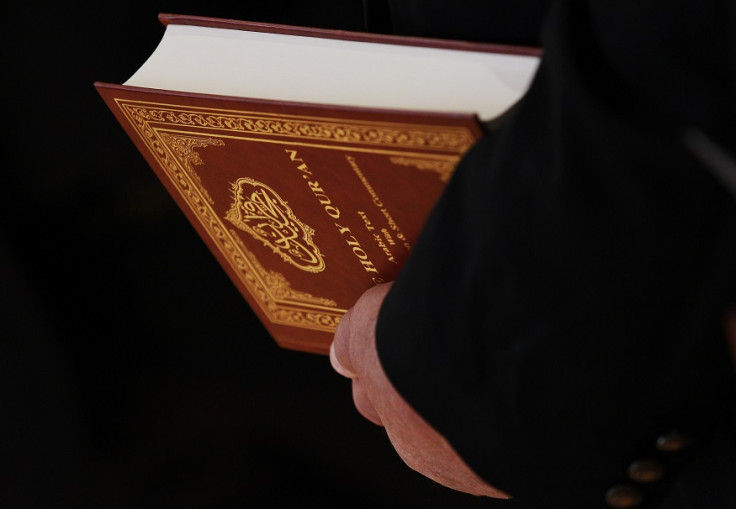Women in Islam: Prophet Muhammad's Wife 'Edited Koran'

The Prophet Muhammad's fourth wife, Hafsa bint 'Umar, helped edit and codify the Koran, an American professor has claimed.
In Did a Woman Edit the Koran? Hafsa's Famed Codex, published in the Journal of the American Academy of Religion, author Ruqayya Khan said that Hafsa had a crucial role in the transcription of the text. She is also believed to be one of the first people to have a written version of it.
Most scholars tend to marginalise Hafsa's role in the formulation of the Koran, portraying her as nothing more than a go-between among male leaders of the early Islamic community.
But Khan, who is chair of Islamic Studies at Claremont Graduate University in California, challenged these beliefs.
"Muḥammad is shown instructing Hafṣa in the Koran as well as writing Koranic verses for her.
"Evidently, her father 'Umar regarded her as an authority on the oral and written Koran, because he seeks her out when it came to sort out competing recitations of Koranic verses."
The professor explained that one of the most important reasons why she decided to conduct the research on Hafsa was to defeat the belief that the Koran encourages inequality between men and women.
"Spiritually, if you look at the Koran, it definitely suggests that women and men are equal in the eyes of God, they are created equally, etc.
"But if you look at the actual history and lived realities of women in majority Muslim cultures and civilizations, it's been pretty miserable. So there's a disparity between what's there in theory and what's reality."
Khan said she is committed to working towards women's empowerment in Islam.
"[I want] to draw attention to early female figures and that they did have agency, they did have contributions, they were thinking, questioning individuals."
Khan believes people's reaction to her new study "might be a serious issue" but urged a more open vision of the Koran.
"Why is it that some of today's Muslims think that the Koran has to be interpreted only one way? It doesn't make any sense.
"If the Prophet himself engaged in debate with his wives and other people it seems to suggest that he was more relaxed and fluid in his thinking about the Koran than today's Muslims are."
© Copyright IBTimes 2025. All rights reserved.






















